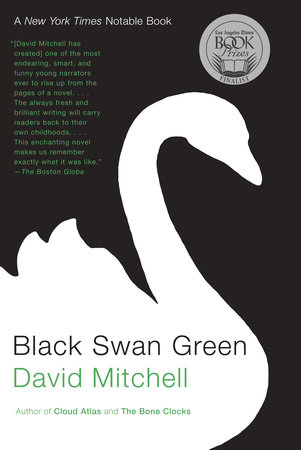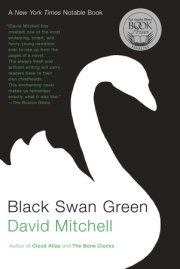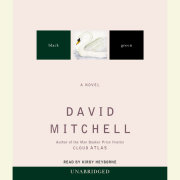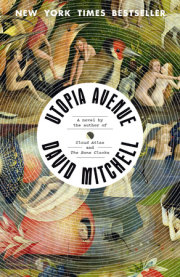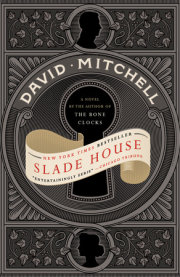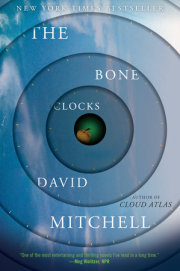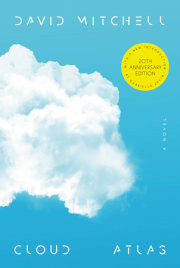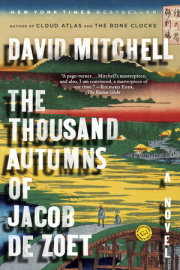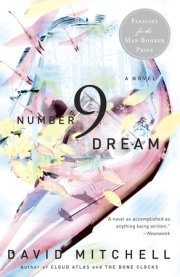JANUARY
MAN
Do not
set foot in my office. That’s Dad’s rule. But the phone’d rung twenty-five
times. Normal people give up after ten or eleven, unless it’s a matter of
life or death. Don’t they? Dad’s got an answering machine like James Garner’s
in
The Rockford Files with big reels of tape. But he’s stopped leaving it
switched on recently. Thirty rings, the phone got to. Julia couldn’t hear it up
in her converted attic ’cause “Don’t You Want Me?” by Human League was
thumping out dead loud.
Forty rings. Mum couldn’t hear ’cause the washing
machine was on berserk cycle
and she was hoovering the living room.
Fifty
rings. That’s just not normal. S’pose Dad’d been mangled by a juggernaut on
the M5 and the police only had this office number ’cause all his other I.D.’d
got incinerated? We could lose our final chance to see our charred father in
the terminal ward.
So I went in, thinking of a bride going into Bluebeard’s chamber after
being told not to. (Bluebeard, mind, was waiting for that to happen.) Dad’s office
smells of pound notes, papery but metallic too. The blinds were down so
it felt like evening, not ten in the morning. There’s a serious clock on the
wall, exactly the same make as the serious clocks on the walls at school.
There’s a photo of Dad shaking hands with Craig Salt when Dad got made regional
sales director for Greenland. (Greenland the supermarket chain, not
Greenland the country.) Dad’s IBM computer sits on the steel desk.
Thousands
of pounds, IBMs cost. The office phone’s red like a nuclear hotline and
it’s got buttons you push, not the dial you get on normal phones.
So anyway, I took a deep breath, picked up the receiver, and said our
number. I can say that without stammering, at least. Usually.
But the person on the other end didn’t answer.
"Hello?” I said. “Hello?”
They breathed in like they’d cut themselves on paper.
“Can you hear me? I can’t hear you.”
Very faint, I recognized the
Sesame Street music.
“If you can hear me”—I remembered a Children’s Film Foundation film
where this happened—“tap the phone, once.”
There was no tap, just more
Sesame Street.
“You might have the wrong number,” I said, wondering.
A baby began wailing and the receiver was slammed down.
When people listen they make a listening noise.
I’d heard
it, so they’d heard
me.
“May as well be hanged for a sheep as hanged for a handkerchief.” Miss
Throckmorton taught us that
aeons ago. ’Cause I’d sort of had a reason to
have come into the forbidden chamber, I peered through Dad’s razor-sharp
blind, over the glebe, past the cockerel tree, over more fields, up to the
Malvern Hills. Pale morning, icy sky, frosted crusts on the hills, but no sign of
sticking snow, worse luck. Dad’s swivelly chair’s a lot like the Millennium
Falcon’s laser tower. I blasted away at the skyful of Russian MiGs streaming
over the Malverns. Soon tens of thousands of people between here and
Cardiff owed me their lives. The glebe was littered with mangled fusilages
and blackened wings. I’d shoot the Soviet airmen with tranquilizer darts as
they pressed their ejector seats. Our marines’ll mop them up. I’d refuse all
medals. “Thanks, but no thanks,” I’d tell Margaret Thatcher and Ronald Reagan
when Mum invited them in, “I was just doing my job.”
Dad’s got this fab pencil sharpener clamped to his desk. It makes pencils
sharp enough to puncture body armor. H pencils’re sharpest, they’re Dad’s
faves. I prefer 2Bs.
The doorbell went. I put the blind back to how it was, checked I’d left no
other traces of my incursion, slipped out, and flew downstairs to see who it
was. The last six steps I took in one death-defying bound.
Moron, grinny-zitty as ever. His bumfluff’s getting thicker, mind. “You’ll
never guess what!”
"What?”
“You know the lake in the woods?”
“What about it?”
“It’s only”—Moron checked that we weren’t being overheard—“gone and
froze
solid! Half the kids in the village’re there, right now.
Ace doss or what?”
“Jason!” Mum appeared from the kitchen. “You’re letting the cold in!
Either invite Dean in
side—hel
lo Dean—or shut the door.”
“Um . . . just going out for a bit, Mum.”
“
Um . . . where?”
“Just for some healthy fresh air.”
That was a strategic mistake. “What are you up to?”
I wanted to say “Nothing” but Hangman decided not to let me. “Why
would I be up to anything?” I avoided her stare as I put on my navy duffel
coat.
“What’s your new black parka done to offend you, may I ask?”
I still couldn’t say “Nothing.” (Truth is, black means you fancy yourself as
a hard-knock. Adults can’t be expected to understand.) “My duffel’s a bit
warmer, that’s all. It’s parky out.”
“Lunch is one o’clock
sharp.” Mum went back to changing the Hoover
bag. “Dad’s coming home to eat. Put on a woolly hat or your head’ll freeze.”
Woolly hats’re gay but I could stuff it in my pocket later.
“Good-bye then, Mrs. Taylor,” said Moron.
“Good-bye, Dean,” said Mum.
Mum’s never liked Moron.
Moron’s my height and he’s okay but
Jesus he pongs of gravy. Moron wears
ankle-flappers from charity shops and lives down Druggers End in a brick cottage
that pongs of gravy too. His real name’s Dean Moran (rhymes with “warren”)
but our P.E. teacher Mr. Carver started calling him “Moron” in our first
week and it’s stuck. I call him “Dean” if we’re on our own but name’s aren’t
just names. Kids who’re really popular get called by their first names, so Nick
Yew’s always just “Nick.” Kids who’re a bit popular like Gilbert Swinyard have
sort of respectful nicknames like “Yardy.” Next down are kids like me who call
each other by our surnames. Below us are kids with piss-take nicknames like
Moran Moron or Nicholas Briar, who’s Knickerless Bra. It’s all ranks, being a
boy, like the army. If I called Gilbert Swinyard just “Swinyard,” he’d kick my
face in. Or if I called Moron “Dean” in front of everyone, it’d damage my
own standing. So you’ve got to watch out.
Girls don’t do this so much, ’cept for Dawn Madden, who’s a boy gone
wrong in some experiment. Girls don’t scrap so much as boys either. (That said,
just before school broke up for Christmas, Dawn Madden and Andrea Bozard
started yelling “Bitch!” and “Slag!” in the bus queues after school. Punching
tits and pulling hair and everything, they were.) Wish I’d been born a girl,
sometimes. They’re generally loads more civilized. But if I ever admitted that
out loud I’d get bumhole plummer scrawled on my locker. That happened to
Floyd Chaceley for admitting he liked Johann Sebastian Bach. Mind you, if
they knew Eliot Bolivar, who gets poems published in
Black Swan Green Parish
Magazine, was
me, they’d gouge me to death behind the tennis courts with
blunt woodwork tools and spray the Sex Pistols logo on my gravestone.
So anyway, as Moron and I walked to the lake he told me about the
Scalectrix he’d got for Christmas. On Boxing Day its transformer blew up and
nearly wiped out his entire family. “Yeah, sure,” I said. But Moron swore it on
his nan’s grave. So I told him he should write to
That’s Life on BBC and get
Esther Rantzen to make the manufacturer pay compensation. Moron
thought that might be difficult ’cause his dad’d bought it off a Brummie at
Tewkesbury Market on Christmas Eve. I didn’t dare ask what a “Brummie”
was in case it’s the same as “bummer” or “bumboy,” which means homo.
“Yeah,” I said, “see what you mean.” Moron asked me what I’d got for Christmas.
I’d actually got £13.50 in book tokens and a poster of Middle-earth, but
books’re gay so I talked about the Game of Life, which I’d got from Uncle
Brian and Aunt Alice. It’s a board game you win by getting your little car to
the end of the road of life first, and with the most money. We crossed the
crossroads by the Black Swan and went into the woods. Wished I’d rubbed
ointment into my lips ’cause they get chapped when it’s this cold.
Soon we heard kids through the trees, shouting and screaming. “Last one
to the lake’s a
spaz!” yelled Moron, haring off before I was ready. Straight off
he tripped over a frozen tire rut, went flying, and landed on his arse. Trust
Moran. “I think I might’ve got a concussion,” he said.
“Concussion’s if you hit your head. Unless your brain’s up your arse.”
What a line. Pity nobody who matters was around to hear it.
The lake in the woods was
epic. Tiny bubbles were trapped in the ice like in
Fox’s Glacier Mints. Neal Brose had proper Olympic ice skates he hired out
for 5p a go, though Pete Redmarley was allowed to use them for free so other
kids’d see him speed-skating around and want a go too. Just staying up on the
ice is hard enough. I fell over loads before I got the knack of sliding in my
trainers. Ross Wilcox turned up with his cousin Gary Drake
and Dawn Mad-
den. All three’re pretty good skaters. Drake and Wilcox’re taller than me too
now. (They’d cut the fingers off of their gloves to show the scars they’d got
playing Scabby Queen. Mum’d
murder me.) Squelch sat on the humpy island
in the middle of the lake where the ducks normally live, shouting, “
Arse
over tit! Arse over tit!” at whoever fell over. Squelch’s funny in the head ’cause
he was born too early, so nobody ever thumps him one. Not hard, anyway.
Grant Burch rode his servant Philip Phelps’s Raleigh Chopper actually on
the ice. He kept his balance for a few seconds, but when he pulled a wheelie
the bike went flying. After it landed it looked like Uri Geller’d tortured it to
death. Phelps grinned sickly. Bet he was wondering what he’d tell his dad.
Then Pete Redmarley and Grant Burch decided the frozen lake’d be perfect
for British Bulldogs. Nick Yew said, “Okay, I’m on for that,” so it was decided.
I
hate British Bulldogs. When Miss Throckmorton banned it at our primary
school after Lee Biggs lost three teeth playing it, I was
dead relieved. But this
morning any kid who denied loving British Bulldogs’d’ve looked a total
ponce. Specially kids from up Kingfisher Meadows like me.
About twenty or twenty-five of us boys, plus Dawn Madden, stood in a
bunch to be picked like slaves in a slave market. Grant Burch and Nick Yew
were joint captains of one team. Pete Redmarley and Gilbert Swinyard were
the captains of the other. Ross Wilcox and Gary Drake both got picked before
me by Pete Redmarley, but I got picked by Grant Burch on the sixth pass,
which wasn’t embarrassingly late. Moron and Squelch were the last two left.
Grant Burch and Pete Redmarley joked, “No, you can have ’em both, we
want to
win!” and Moron and Squelch had to laugh like they thought it was
funny too. Maybe Squelch really did. (Moron didn’t. When everyone looked
away, he had the same face as that time after we all told him we were playing
Hide-and-Seek and sent him off to hide. It took an hour for him to work out
nobody was looking for him.) Nick Yew won the toss so us lot were the Runners
first and Pete Redmarley’s team were the Bulldogs. Unimportant kids’
coats were put at either end of the lake as goalmouths to reach through and
to defend. Girls, apart from Dawn Madden, and the littl’uns were cleared off
the ice. Redmarley’s Bulldogs formed a pack in the middle and us Runners
slid to our starting goal. My heart was drumming now. Bulldogs and Runners
crouched like sprinters. The captains led the chant.
“British Bulldogs! One two
three!”
Screaming like kamikazes, we charged. I slipped over (accidentally on purpose)
just before the front wave of Runners smashed into the Bulldogs. This’d
tie up most of the hardest Bulldogs in fights with our front Runners. (Bulldogs
have to pin down both shoulders of Runners onto the ice for long
enough to shout “British Bulldogs one two three.”) With luck, my strategy’d
clear some spaces to dodge through and on to our home goalposts. My plan
worked pretty well at first. The Tookey brothers and Gary Drake all crashed
into Nick Yew. A flying leg kicked my shin but I got past them without coming
a cropper. But then Ross Wilcox came homing in on me. I tried to wriggle
past but Wilcox got a firm grip on my wrist and tried to pull me down. But
instead of trying to struggle free I got a firmer grip on
his wrist and flung him
off me, straight into Ant Little and Darren Croome. Ace in the
face or what?
Games and sports aren’t about taking part or even about winning. Games and
sports’re really about humiliating your enemies. Lee Biggs tried a poxy rugby
tackle on me but I shook him free
no sweat. He’s too worried about the teeth
he’s got left to be a decent Bulldog. I was the fourth Runner home. Grant
Burch shouted, “Nice work
Jacey-boy!” Nick Yew’d fought free of the Tookeys
and Gary Drake and got home too. About a third of the Runners got captured
and turned into Bulldogs for the next pass. I hate that about British Bulldogs.
It forces you to be a traitor.
So anyway, we all chanted, “British Bulldogs one two THREE!” and
charged like last time but this time I had no chance. Ross Wilcox
and Gary
Drake
and Dawn Madden targeted me from the start. No matter how I tried
to dodge through the fray it was hopeless. I hadn’t got halfway across the lake
before they got me. Ross Wilcox went for my legs, Gary Drake toppled me,
and Dawn Madden sat on my chest and pinned my shoulders down with her
knees. I just lay there and let them convert me into a Bulldog. In my heart I’d
always be a Runner. Gary Drake gave me a dead leg, which might or might
not’ve been on purpose. Dawn Madden’s got cruel eyes like a Chinese empress
and sometimes one glimpse at school makes me think about her all day.
Ross Wilcox jumped up and punched the air like he’d scored at Old Trafford.
The spazzo. “Yeah, yeah, Wilcox,” I said, “three against one, well done.”
Wilcox flashed me a V-sign and slid off for another battle. Grant Burch and
Nick Yew came windmilling at a thick pocket of Bulldogs and half of them
went flying.
Then Gilbert Swinyard yelled at the top of his lungs, “
PIIIIIILEONNNNNN!”
That was the signal for every Runner and every Bulldog on
the lake to throw themselves onto a wriggling, groaning, growing pyramid of
kids. The game itself was sort of forgotten. I held back, pretending to limp a
bit from my dead leg. Then we heard the sound of a chain saw in the woods,
flying down the track, straight toward us.
The chain saw wasn’t a chain saw. It was Tom Yew on his purple Suzuki
150cc scrambler. Pluto Noak was clinging to the back, without a helmet.
British Bulldogs was aborted ’cause Tom Yew’s a minor legend in Black
Swan Green. Tom Yew serves in the Royal Navy on a frigate called HMS
Coventry. Tom Yew’s got every Led Zep album ever made
and can play the
guitar introduction to “Stairway to Heaven.” Tom Yew’s actually shaken
hands with Peter Shilton, the England goalkeeper. Pluto Noak’s a less shiny
legend. He left school without even taking his CSEs last year. Now he
works in the Pork Scratchings factory in Upton-on-Severn. (There’s rumors
Pluto Noak’s smoked cannabis but obviously it wasn’t the type that cauliflowerizes
your brain and makes you jump off roofs onto railings.) Tom Yew
parked his Suzuki by the bench on the narrow end of the lake and sat on it,
sidesaddle. Pluto Noak thumped his back to say thanks and went to speak to
Collette Bozard, who, according to Moron’s sister Kelly, he’s had sexual intercourse
with. The older kids sat on the bench facing him, like Jesus’s disciples,
and passed round fags. (Ross Wilcox and Gary Drake smoke now.
Worse still, Ross Wilcox asked Tom Yew something about Suzuki silencers
and Tom Yew answered him like Ross Wilcox was eighteen too.) Grant
Burch told his servant Phelps to run and get him a peanut Yorkie and a can
of Top Deck from Rhydd’s Shop, yelling after him, “
Run, I told yer!” to impress
Tom Yew. Us middle-rank kids sat round the bench on the frosty
ground. The older kids started talking about the best things on TV over
Christmas and New Year’s. Tom Yew started saying he’d seen
The Great Escape
and everyone agreed everything else’d been crap compared to
The
Great Escape, specially the bit where Steve McQueen gets caught by Nazis
on the barbed wire. But then Tom Yew said he thought it’d gone on a bit
long and everyone agreed that though the film was classic it’d dragged on
for
ages. (I didn’t see it ’cause Mum and Dad watched the Two Ronnies
Christmas special. But I paid close attention so I can pretend to’ve watched
it when school starts next Monday.)
The talk’d shifted, for some reason, to the worst way to die.
“Gettin’ bit by a green mamba,” Gilbert Swinyard reckoned. “Deadliest
snake in the world. Yer organs burst so yer piss mixes with yer blood.
Agony.”
“Agony, sure,” sniffed Grant Burch, “but you’re dead pretty quick. Havin’
yer skin unpeeled off yer like a sock, that’s worse. Apache Indians do that to
yer. The best ones can make it last the whole night.”
Pete Redmarley said he’d heard of this Vietcong execution. “They strips
yer, ties yer up, then rams Philadelphia cheese up yer jax.
Then they locks yer
in a coffin with a pipe goin’ in.
Then they send starving rats down the pipe.
The rats eat through the cheese, then carry on chewin’, into
you.”
Everyone looked at Tom Yew for the answer. “I get this dream.” He took a
drag on his cigarette that lasted an age. “I’m with the last bunch of survivors,
after an atomic war. We’re walking up a motorway. No cars, just weeds. Every
time I look behind me, there’re fewer of us. One by one, you see, the radiation’s
getting them.” He glanced at his brother Nick, then over the frozen
lake. “It’s not that I’ll die that bothers me. It’s that I’ll be the last one.”
Nobody said a lot for a bit.
Ross Wilcox swiveled our way. He took a drag on his cigarette that lasted
an age, the poser. “If it wasn’t for Winston Churchill
you lot’d all be speakin’
German now.”
Sure, like Ross Wilcox would’ve evaded capture and headed a resistance
cell. I was
dying to tell that prat that
actually, if the Japanese hadn’t bombed
Pearl Harbor, America’d never’ve come into the war, Britain’d’ve been
starved into surrender, and Winston Churchill’d’ve been executed as a war
criminal. But I knew I couldn’t. There were swarms of stammer-words in
there, and Hangman’s bloody merciless this January. So I said I was busting
for a waz, stood up, and went down the path to the village a bit. Gary Drake
shouted, “Hey, Taylor! Shake your dong more than twice, you’re
playing with
it!,” which got fat laughs from Neal Brose and Ross Wilcox. I flashed them a
V-sign over my shoulder. That stuff about shaking your dong’s a craze at the
moment. There’s no one I can trust to ask what it means.
Trees’re always a relief, after people. Gary Drake and Ross Wilcox might’ve
been slagging me off, but the fainter the voices became, the less I wanted to go
back. I
loathed myself for not putting Ross Wilcox in his place about speaking
German, but it’d’ve been
death to’ve started stammering back there. The
cladding of frost on thorny branches was thawing and fat drops drip-dripdripping.
It soothed me, a bit. In little pits where the sun couldn’t reach there
was still some gravelly snow left, but not enough to make a snowball. (Nero
used to kill his guests by making them eat glass food, just for a laugh.) A robin,
I saw, a woodpecker, a magpie, a blackbird, and far off I
think I heard a
nightingale, though I’m not sure you get them in January. Then, where the
faint path from the House in the Woods meets the main path to the lake, I
heard a boy, gasping for breath, pounding this way. Between a pair of wishbone
pines I squeezed myself out of sight. Phelps dashed by, clutching his
master’s peanut Yorkie and a can of Tizer. (Rhydd’s must be out of Top Deck.)
Behind the pines a possible path led up the slant. I know
all the paths in this
part of the woods, I thought. But not this one. Pete Redmarley and Grant
Burch’d start up British Bulldogs again when Tom Yew left. That wasn’t much
of a reason to go back. Just to see where the path might go, I followed it.
There’s only one house in the woods so that’s what we call it, the House in the
Woods. An old woman was s’posed to live there, but I didn’t know her name
and I’d never seen her. The house’s got four windows and a chimney, same as
a little kid’s drawing of a house. A brick wall as high as me surrounds it and
wild bushes grow higher. Our war games in the woods steered clear of the
building. Not ’cause there’re any ghost stories about it or anything. It’s just
that part of the woods isn’t good.
But this morning the house looked so hunkered down and locked up, I
doubted anyone was still living there. Plus, my bladder was about to split, and
that makes you less cautious. So I peed up against the frosted wall. I’d just finished
signing my autograph in steamy yellow when a rusty gate opened up
with a tiny shriek and there stood a sour aunt from black-and-white times. Just
standing there, staring at me.
My pee ran dry.
“God! Sorry!” I zipped up my fly, expecting an
utter bollocking. Mum’d
flay alive any kid she found pissing against
our fence, then feed his body to
the compost bin. Including me. “I didn’t know anyone was living . . . here.”
The sour aunt carried on looking at me.
Pee dribbles blotted my underpants.
“My brother and I were born in this house,” she said, finally. Her throat
was saggy like a lizard’s. “We have no intention of moving away.”
“Oh . . .” I still wasn’t sure if she was about to open fire on me. “Good.”
“How noisy you youngsters are!”
“Sorry.”
“It was very careless of you to wake my brother.”
My mouth’d glued up. “It wasn’t me making all the noise. Honestly.”
“There are days”—the sour aunt never blinked—“when my brother loves
youngsters. But on days like these, my oh my, you give him the furies.”
“Like I said, I’m sorry.”
“You’ll be
sorrier,” she said, looking disgusted, “if my brother gets a hold
of you.”
Quiet things were too loud and loud things couldn’t be heard.
“Is he . . . uh, around? Now? Your brother, I mean?”
“His room’s just as he left it.”
“Is he ill?”
She acted like she hadn’t heard me.
“I’ve got to go home now.”
“You’ll be
sorrier”—she did that spitty chomp old people do to not dribble—“
when the ice cracks.”
“The ice? On the lake? It’s as solid as anything.”
“You
always say so. Ralph Bredon said so.”
“Who’s he?”
“Ralph Bredon. The butcher’s boy.”
It didn’t feel at all right. “I’ve got to go home now.”
Lunch at 9 Kingfisher Meadows, Black Swan Green, Worcestershire, was
Findus ham’n’cheese Crispy Pancakes, crinkle-cut oven chips, and sprouts.
Sprouts taste of fresh puke but Mum said I had to eat
five without making a
song and dance about it, or there’d be no butterscotch Angel Delight for pudding.
Mum says she won’t let the dining table be used as a venue for “adolescent
discontent.” Before Christmas I asked what not liking the taste of sprouts
has to do with “adolescent discontent.” Mum warned me to stop being a
Clever Little Schoolboy. I should’ve shut up but I pointed out that Dad never
makes her eat melon (which
she hates) and Mum never makes Dad eat garlic
(which
he hates). She went
ape and sent me to my room. When Dad got
back I got a lecture about arrogance.
No pocket money that week, either.
So anyway, this lunchtime I cut my sprouts up into tiny pieces and glolloped
tomato ketchup over them. “Dad?”
“
Jason?”
“If you drown, what happens to your body?”
Julia rolled her eyes like Jesus on his cross.
“Bit of a morbid topic for the dinner table.” Dad chewed his forkful of
crispy pancake. “Why do you ask?”
It was best not to mention the frozen-up pond. “Well, in this book
Arctic
Adventure these two brothers Hal and Roger Hunt’re being chased by a baddie
called Kaggs who falls into the—”
Dad held up his hand to say
Enough! “Well, in
my opinion, Mr. Kaggs
gets eaten by fish. Picked clean.”
“Do they have piranhas in the Arctic?”
“Fish’ll eat anything once it’s soft enough. Mind you, if he fell into the
Thames, his body’d wash up before long. The Thames always gives up its
dead, the Thames does.”
My misdirection was complete. “How about if he fell through ice, into a
lake, say? What’d happen to him then? Would he sort of stay . . . deep
frozen?”
“
Thing,” Julia mewled, “is being gro
tesque while we’re eating, Mum.”
Mum rolled up her napkin. “Lorenzo Hussingtree’s has a new range of
tiles in, Michael.” (My abortion of a sister flashed me a victorious grin.)
“Michael?”
“Yes, Helena?”
“I thought we could drop by Lorenzo Hussingtree’s showroom on our way
to Worcester. New tiles. They’re ex
quisite.”
“No doubt Lorenzo Hussingtree charges exquisite prices, to match?”
“We’re having workmen in anyway, so why not make a proper job of it?
The kitchen’s getting embarrassing.”
“Helena, why—”
Julia sees arguments coming even before Mum and Dad sometimes.
“Can I get down now?”
“Darling.” Mum looked really hurt. “It’s butterscotch Angel Delight.”
“Yummy, but could I have mine tonight? Got to get back to Robert Peel
and the Enlightened Whigs. Anyway, Thing has ruined my appetite.”
“Pigging on Cadbury’s Roses with Kate Alfrick,” I counterattacked, “is
what’s ruined
your appetite.”
“So where did the Terry’s Chocolate Orange go, Thing?”
“Julia,” Mum sighed, “I
do wish you wouldn’t call Jason that. You’ve only
got one brother.”
Julia said, “One too many” and got up.
Dad remembered something. “Have either of you been into my office?”
“Not me, Dad.” Julia hovered in the doorway, scenting blood. “Must’ve
been my honest, charming, obedient, younger sibling.”
How did he know?
“It’s a simple enough question.” Dad had hard evidence. The only adult I
know who bluffs kids is Mr. Nixon, our headmaster.
The pencil! When Dean Moran rang the doorbell I must’ve left the pencil
in the sharpener.
Damn Moron. “Your phone was ringing for
yonks, like,
four or five minutes,
honestly, so—”
Dad didn’t care. “What’s the rule about not going into my office?”
“But I thought it might be an emergency so I picked it up and there
was”—Hangman blocked “someone”—“a person on the other end but—”
“I believe”—now Dad’s palm said
HALT!—“I just asked you a question.”
“Yes, but—”
“
What question did I just ask you?”
“ ‘What’s the rule about not going into my office?’ ”
“So I did.” Dad’s a pair of scissors at times.
Snip snip
snip snip. “Now, why
don’t you
answer this question?”
Then Julia did a strange move. “That’s funny.”
“I don’t see anyone laughing.”
“No, Dad, on Boxing Day when you and Mum took Thing to Worcester,
the phone in your office went. Honestly, it went on for
aeons. I couldn’t concentrate
on my revision. The more I told myself it wasn’t a desperate ambulanceman
or something, the likelier it seemed it was. In the end it was driving
me crazy. I had no choice. I said ‘Hello’ but the person on the other end
didn’t say anything. So I hung up, in case it was a pervert.”
Dad’d gone quiet but the danger wasn’t past.
“That was just like me,” I ventured. “But I didn’t hang up straightaway
’cause I thought maybe they couldn’t hear me. Was there a baby in the background,
Julia?”
“O
kay, you two, enough of the private-eye biz. If some joker
is making
nuisance calls then I don’t want
either of you answering, no matter what. If it
happens again, just unplug the socket. Understand?”
Mum was just sitting there. It didn’t feel at all right.
Dad’s “DID YOU
HEAR ME?” was like a brick through a window. Julia
and me jumped. “Yes Dad.”
Mum, me, and Dad ate our butterscotch Angel Delight without a word. I
didn’t dare even look at my parents.
I couldn’t ask to get down early too ’cause
Julia’d already used that card. Why
I was in the doghouse was clear enough,
but God knows why Mum and Dad were giving each other the silent treatment.
After the last spoonful of Angel Delight Dad said, “Lovely, Helena,
thank you. Jason and I’ll do the washing up, won’t we, Jason?”
Mum just made this nothing-sound and went upstairs.
Dad washed up, humming a nothing-song. I put the dirty dishes in the
hatch, then went into the kitchen to dry. I should’ve just shut up, but I
thought I could make the day turn safely normal if I just said the right thing.
“Do you get”—Hangman
loves giving me grief over this word—“nightingales
in January, Dad? I might’ve heard one this morning. In the woods.”
Dad was Brillo-padding a pan. “How should I know?”
I pushed on. Usually Dad likes talking about nature and stuff. “But that
bird at granddad’s hospice. You said it was a nightingale.”
“Huh. Fancy you remembering that.” Dad stared over the back lawn at
the icicles on the summerhouse. Then this noise came out of Dad like he’d
entered the World’s Miserablest Man of 1982 Competition. “Just concentrate
on those glasses, Jason, before you drop one.” He switched on Radio 2 for the
weather forecast, then began cutting up the 1981
Highway Code with scissors.
Dad bought the updated 1982
Highway Code the day it came out, and
he says old ones could cause accidents if they’re not destroyed. Tonight most
of the British Isles will see temperatures plunging well below zero. Motorists
in Scotland and the North should be careful of black ice on the roads, and
the Midlands should anticipate widespread patches of freezing fog.
Up in my room I played the Game of Life, but being two players at once is no
fun. Julia’s friend Kate Alfrick called for Julia to study together. But they were
just gossiping about who’s going out with who in the sixth form, and playing
Police singles. My billion problems kept bobbing up like corpses in a flooded
city. Mum and Dad at lunch. Hangman colonizing the alphabet. At this rate
I’m going to have to learn sign language. Gary Drake and Ross Wilcox.
They’ve never exactly been my best mates but today they’d ganged up against
me. Neal Brose was in on it too. Last, the sour aunt in the woods worried me.
How come?
Wished there was a crack to slip through and leave all this stuff behind.
Next week I’m thirteen but thirteen looks way worse than twelve. Julia moans
nonstop about being eighteen but eighteen’s
epic, from where
I’m standing.
No official bedtime, twice my pocket money, and for Julia’s eighteenth she
went to Tanya’s Night Club in Worcester with her thousand and one friends.
Tanya’s’s got the
only xenon disco laser light in
Europe! How ace is
that?
Dad drove off up Kingfisher Meadows, alone.
Mum must still be in her room. She’s there more and more recently.
To cheer myself up I put on my granddad’s Omega. Dad called me into
his office on Boxing Day and said he had something very important to give
me, from my grandfather. Dad’d been keeping it till I was mature enough to
look after it myself. It was a watch. An Omega Seamaster De Ville. Granddad
bought it off a real live Arab in a port called Aden in 1949. Aden’s in Arabia
and once it was British. He’d worn it every day of his life, even the moment
he died. That fact makes the Omega more special, not scary. The Omega’s
face is silver and wide as a 50p but as thin as a tiddlywink. “A sign of an excellent
watch,” Dad said, grave as grave, “is its thinness. Not like these plastic
tubs teenagers strap to their wrist these days to strut about in.”
Where I hid my Omega is a work of genius and second in security only to
my Oxo tin under the loose floorboard. Using a Stanley knife I hollowed out
a crappy-looking book called
Woodcraft for Boys. Woodcraft for Boys’s on my
shelf between real books. Julia often snoops in my room, but she’s never discovered
this hiding place. I’d know ’cause I keep a 1⁄2p coin balanced on it at
the back. Plus, if Julia’d found it she’d’ve copied my ace idea for sure. I’ve
checked
her bookshelf for false spines and there aren’t any.
Outside I heard an unfamiliar car. A sky-blue VW Jetta was crawling
along the curb, as if its driver was searching for a house number. At the end
of our cul-de-sac the driver, a woman, did a three-point turn, stalled once,
and drove off up Kingfisher Meadows. I should’ve memorized the number
plate in case it’s on
Police 999.
Granddad was the last grandparent to die, and the only one I have any
memories of. Not many. Chalking roads for my Corgi cars down his garden
path. Watching
Thunderbirds at his bungalow in Grange-over-Sands and
drinking pop called Dandelion and Burdock.
I wound the stopped Omega up and set the time to a fraction after three.
Unborn Twin murmured,
Go to the lake.
The stump of an elm guards a bottleneck in the path through the woods. Sitting
on the stump was Squelch. Squelch’s real name’s Mervyn Hill but one
time when we were changing for P.E., he pulled down his trousers and we
saw he had a nappy on. About nine, he’d’ve been. Grant Burch started the
Squelch nickname and it’s been years since anyone’s called him Mervyn. It’s
easier to change your eyeballs than to change your nickname.
So anyway, Squelch was stroking something furry and moon gray in the
crook of his elbow. “Finders keepers, losers weepers.”
“All right, Squelch. What you got there, then?”
Squelch’s got stained teeth. “Ain’t showin’!”
“Go on. You can show
us.”
Squelch mumbled, “Kit Kat.”
“A Kit Kat? A chocolate bar?”
Squelch showed me the head of a sleeping kitten. “Kitty cat! Finders
keepers, losers weepers.”
“Wow. A cat. Where’d you find her?”
“By the lake. Crack o’ dawn, b’fore anyone else got to the lake. I hided her
while we did British Bulldogs. Hided her in a box.”
“Why didn’t you show it to anyone?”
“Burch and Swinyard and Redmarley and them
bastards’d’ve tooked her
away’s why! Finders keepers, losers weepers. I hided her. Now I come back.”
You never know with Squelch. “She’s quiet, isn’t she?”
Squelch just petted her.
“Could I hold her, Merv?”
“If you don’t breathe a
word to no one”—Squelch eyed me dubiously—
“you can stroke her. But take them gloves off. They’re nobbly.”
So I took off my goalie gloves and reached out to touch the kitten.
Squelch lobbed the kitten at me. “It’s
yours now!”
Taken by surprise, I caught the kitten.
“Yours!” Squelch ran off laughing back to the village.
“Yours!”
The kitten was cold and stiff as a pack of meat from the fridge. Only now
did I realize it was dead. I dropped it. It thudded.
“Finders,” Squelch called, his voice dying off, “keepers!”
Using two sticks, I lifted the kitten into a clump of nervy snowdrops.
So still, so dignified. Died in the frost last night, I s’pose.
Dead things show you what you’ll be too one day.
Nobody’d be out on the frozen lake, I’d suspected, and there wasn’t a soul.
Superman II was on TV. I’d seen it at Malvern Cinema about two years ago
on Neal Brose’s birthday. It wasn’t bad but not worth sacrificing my own private
frozen lake for. Clark Kent gives up his powers just to have sexual intercourse
with Lois Lane in a glittery bed. Who’d make such a stupid swap? If
you could
fly? Deflect nuclear missiles into space? Turn back time by spinning
the planet in reverse? Sexual intercourse can’t be
that good.
I sat on the empty bench to eat a slab of Jamaican Ginger Cake, then went
out on the ice. Without other kids watching, I didn’t fall
once. Round and
around in swoopy anticlockwise loops I looped, a stone on the end of a string.
Overhanging trees tried to touch my head with their fingers. Rooks
craw . . .
craw . . . crawed, like old people who’ve forgotten why they’ve come upstairs.
A sort of trance.
The afternoon’d gone and the sky was turning to outer space when I noticed
another kid on the lake. This boy skated at my speed and followed my orbit,
but always stayed on the far side of the lake. So if I was at twelve o’clock, he
was at six. When I got to eleven, he was at five, and so on, always across from
me. My first thought was he was a kid from the village, just mucking about. I
even thought he might be Nick Yew ’cause he was sort of stocky. But the
strange thing was, if I looked at this kid directly for more than a moment, dark
spaces sort of swallowed him up. The first couple of times I thought he’d gone
home. But after another half loop of the lake, he’d be back. Just at the edge of
my vision. Once I skated across the lake to intercept him, but he vanished before
I got to the island in the middle. When I carried on orbiting the pond, he
was back.
Go home, urged the nervy Maggot in me.
What if he’s a ghost?
My Unborn Twin can’t stand Maggot.
What if he is
a ghost?
“Nick?” I called out. My voice sounded indoors. “Nick Yew?”
The kid carried on skating.
I called out, “Ralph Bredon?”
His answer took a whole orbit to reach me.
Butcher’s boy.
If a doctor’d told me the kid across the lake was my imagination, and that
his voice was only words I thought, I wouldn’t’ve argued. If Julia’d told me I
was convincing myself Ralph Bredon was there to make myself feel more special
than I am, I wouldn’t’ve argued. If a mystic’d told me that one exact moment
in one exact place can act as an antenna that picks up faint traces of lost
people, I wouldn’t’ve argued.
“What’s it like?” I called out. “Isn’t it cold?”
The answer took another orbit to reach me.
You get used to the cold.
Do the kids who’d drowned in the lake down the years mind me trespassing
on their roof? Do they
want new kids to fall through? For company? Do
they envy the living? Even me?
I called out, “Can you show me? Show me what it’s like?”
The moon’d swum into the lake of night.
We skated one orbit.
The shadow-kid was still there, crouching as he skated, just like I was.
We skated another orbit.
An owl or something fluttered low across the lake.
“Hey?” I called out. “Did you hear me? I want to know what it’s—”
The ice shrucked me off my feet. For a helterskeltery moment I was in
midair at an unlikely height. Bruce Lee doing a karate kick, that high. I knew
it wasn’t going to be a soft landing but I hadn’t guessed how
painful a slam it’d
be. The crack shattered from my ankle to my jaw to my knuckles, like an ice
cube plopped into warm squash. No, bigger than an ice cube. A mirror,
dropped from Skylab height. Where it hit the earth, where it smashed into
daggers and thorns and invisible splinters,
that’s my ankle.
I spun and slid to a shuddery stop by the edge of the lake.
For a bit, all I could do was lie there, basking in that
supernatural pain.
Even Giant Haystacks’d’ve whimpered. “Bloody bugger,” I gasped to plug my
tears. “Bloody bloody bloody bugger!” Through the flinty trees I could
just
hear the sound of the main road but there was no
way I could walk that far. I
tried to stand but just fell on my arse, wincing with fresh pain. I couldn’t
move. I’d die of pneumonia if I stayed where I was. I had no idea what to do.
“You,” sighed the sour aunt. “We suspected you’d come knocking again
soon.”
“I hurt”—my voice’d gone all bendy—“I hurt my ankle.”
“So I see.”
“It’s killing me.”
“I daresay.”
“Can I just phone my dad to come and get me?”
“We don’t care for telephones.”
“Could you go and get help? Please?”
“We don’t
ever leave our house. Not at night. Not here.”
“Please.” The underwatery pain shook as loud as electric guitars. “I can’t
walk.”
“I know about bones and joints. You’d best come inside.”
Inside was colder than outside. Bolts behind me slid home and a lock
turned. “Down you go,” the sour aunt said, “down to the parlor. I’ll be right
along, once I’ve prepared your cure. But whatever you do, be
quiet. You’ll be
very sorry if you wake my brother.”
“All right . . .” I glanced away. “Which way’s your parlor?”
But the dark’d shuffled itself and the sour aunt’d gone.
Way down the hallway was a blade of muddy light, so that was the direction
I limped.
God knows how I walked up the rooty, twisty path from the
frozen lake on that busted ankle. But I must’ve done, to’ve got here. I passed
a ladder of stairs. Enough muffled moonlight fell down it for me to make out
an old photograph hanging on the wall. A submarine in an arctic-looking
port. The crew stood on deck, all saluting. I walked on. The blade of light
wasn’t getting any nearer.
The parlor was a bit bigger than a big wardrobe and stuffed with museumy
stuff. An empty parrot cage, a mangle, a towering dresser, a scythe. Junk, too.
A bent bicycle wheel and one soccer boot, caked in silt. A pair of ancient
skates, hanging on a coat stand. There was nothing modern. No fire. Nothing
electrical apart from a bare brown bulb. Hairy plants sent bleached roots out
of tiny pots.
God it was cold! The sofa sagged under me and
sssssssssed. One
other doorway was screened by beads on strings. I tried to find a position
where my ankle hurt less but there wasn’t one.
Time went by, I suppose.
The sour aunt held a china bowl in one hand and a cloudy glass in the
other. “Take off your sock.”
My ankle was balloony and limp. The sour aunt propped my calf on a
footstool and knelt by it. Her dress rustled. Apart from the blood in my ears
and my jagged breathing there was no other sound. Then she dipped her
hand into the bowl and began smearing a bready goo onto my ankle.
My ankle shuddered.
“This is a poultice.” She gripped my shin. “To draw out the swelling.”
The poultice sort of tickled but the pain was too vicious and I was fighting
the cold too hard. The sour aunt smeared the goo on till it was used up
and my ankled completely clagged. She handed me the cloudy glass. “Drink
this.”
“It smells like . . . marzipan.”
“It’s for drinking. Not smelling.”
“But what is it?”
“It’ll help take the pain away.”
Her face told me I had no real choice. I swigged back the liquid in one go
like you do milk of magnesia. It was syrupy-thick but didn’t taste of much. I
asked, “Is your brother asleep upstairs?”
“Where else would he be, Ralph? Shush now.”
“My name’s not Ralph,” I told her, but she acted like she hadn’t heard.
Clearing up the misunderstanding’d’ve been a massive effort, and now I’d
stopped moving. I just couldn’t fight the cold anymore. Funny thing was, as
soon as I gave in, a lovely drowsiness tugged me downward. I pictured Mum,
Dad, and Julia sitting at home watching
The Paul Daniels Magic Show but
their faces melted away, like reflections on the backs of spoons.
The cold poked me awake. I didn’t know where or who or when I was. My
ears felt bitten and I could see my breath. A china bowl sat on a footstool and
my ankle was crusted in something hard and spongy. Then I remembered
everything, and sat up. The pain in my foot had gone but my head didn’t feel
right, like a crow’d flown in and couldn’t get out. I wiped the poultice off my
foot with a snotty hanky. Unbelievably at first, my ankle swiveled fine, cured,
like magic. I pulled on my sock and trainer, stood up, and tested my weight.
There was a faint twinge, but only ’cause I was looking for it. Through the
beaded doorway I called out, “Hello?”
No answer came. I passed through the crackly beads into a tiny kitchen
with a stone sink and a
massive oven. Big enough for a kid to climb in. Its
door’d been left open, but inside was dark as that cracked tomb under Saint
Gabriel’s. I wanted to thank the sour aunt for curing my ankle.
Make sure the back door opens, warned Unborn Twin.
It didn’t. Neither did the frost-flowered sash window. Its catch and
hinges’d been painted over long ago and it’d take a chisel to persuade it open,
at least. I wondered what the time was and squinted at my granddad’s Omega
but it was too dark in the tiny kitchen to see. Suppose it was late evening? I’d
get back and my tea’d be waiting under a Pyrex dish. Mum and Dad go
ape if
I’m not back in time for tea. Or s’pose it’d gone midnight? S’pose the police’d
been alerted?
Jesus. Or what if I’d slept right through one short day and into
the night of the next? The
Malvern Gazetteer and
Midlands Today’d’ve already
shown my school photo and sent out appeals for witnesses.
Jesus.
Squelch would’ve reported seeing me heading to the frozen lake. Frogmen
might be searching for me there, right now.
This was a bad dream.
No, worse than that. Back in the parlor, I looked at my grandfather’s
Omega and saw that there
was no time. My voice whimpered, “
No.” The
glass face, the hour hand, and the minute hand’d gone and only a bent second
hand was left. When I fell on the ice, it must’ve happened then. The casing
was split and half its innards’d spilt out.
Granddad’s Omega’d never once gone wrong in four decades.
In less than a fortnight, I’d killed it.
Wobbly with dread, I walked up the hallway and rasped up the twisted stairs,
“Hello?” Silent as night in an ice age. “I have to go!” Worry about the
Omega’d swatted off worry about being in this house, but I still daredn’t shout
in case I woke the brother. “I’ve got to go home now,” I called, a bit louder.
No reply. I decided to just leave by the front door. I’d come back in the daytime
to thank her. The bolts slid open easily enough, but the old-style lock
was another matter. Without the key it wouldn’t open. That was that. I’d have
to go upstairs, wake the old biddy to get her key, and if she got annoyed that
was just tough titty. Something,
something, had to be done about the catastrophe
of the smashed watch. God knows what, but I couldn’t do it inside the
House in the Woods.
The stairs curved up steeper. Soon I had to use my hands to grip the stairs
above me, or I’d’ve fallen back. How on
earth the sour aunt went up and
down in that big rookish dress was anybody’s guess. Finally, I hauled myself
onto a tiny landing with two doors. A slitty window let in a glimmer. One door
had to be the sour aunt’s room. The other had to be the brother’s.
Left’s got a power that right hasn’t, so I clasped the iron doorknob on the
left door. It sucked the warmth from my hand, my arm, my blood.
Scrit-scrat.
I froze.
Scrit-scrat.
A deathwatch beetle? Rat in the loft? Pipe freezing up?
Which room was the
scrit-scrat coming from?
The iron doorknob made a coiling creak as I turned it.
Powdery moonlight lit the attic room through the snowflake-lace curtain. I’d
guessed right. The sour aunt lay under a quilt with her dentures in a jar by
her bed, still as a marble duchess on a church tomb. I shuffled over the tipsy
floor, nervous at the thought of waking her. What if she forgot who I was and
thought I’d come to murder her and screamed for help and had a stroke? Her
hair spilt over her folded face like pondweed. A cloud of breath escaped her
mouth every ten or twenty heartbeats. Only that proved she was made of flesh
and blood like me.
“Can you hear me?”
No, I’d have to shake her awake.
My hand was halfway to her shoulder when that scrit-scrat noise started
up again, deep inside
her.
Not a snore. A death rattle.
Go into the other bedroom. Wake her brother. She needs an ambulance.
No. Smash your way out. Run to Isaac Pye in the Black Swan for help. No.
They’d ask why you’d been in the House in the Woods. What’d you say? You
don’t even know this woman’s name. It’s too late. She’s dying, right now. I’m
certain. The scrit-scrat’s uncoiling. Louder, waspier, daggerier.
Her windpipe bulges as her soul squeezes out of her heart.
Her worn-out eyes flip awake like a doll’s, black, glassy, shocked.
From her black crack mouth, a blizzard rushes out.
A silent roaring hangs here.
Not going anywhere.
Copyright © 2006 by David Mitchell. All rights reserved. No part of this excerpt may be reproduced or reprinted without permission in writing from the publisher.

